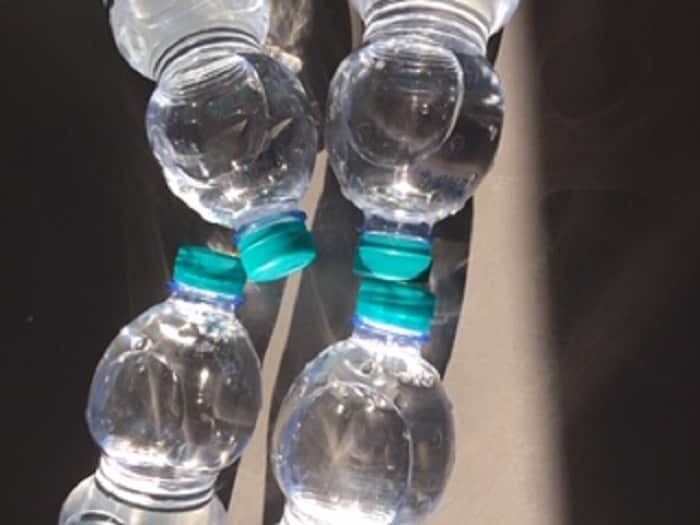Chemical recycling – Waste sorting 30-03-2023 - Arhive
Chemical recycling – Waste sorting
-Ineos Styrolution partners with Agilyx on development of TruStyrenyx plant
Chemical recycler Agilyx ASA and styrenics producer Ineos Styrolution America LLC have joined forces on the development of a 100-ton-per-day TruStyrenyx chemical recycling facility in Channahon, Illinois, the companies have announced.
TruStyrenyx is a partnership between Agilyx and Technip Energie. Following on from a collaboration announced in June 2021, the companies have since cooperated on the development of the TruStyrenyx brand. TruStyrenix is a comprehensive solution for the chemical recycling of polystyrene. The technology combines Agilyx’s pyrolysis process and Technip Energies’ purification technology. The process yields a recycled styrene monomer with exceptionally high purity, suitable for food-grade plastic products or packaging applications. With the support of Ineos Styrolution, the companies will now forge ahead on the further realisation of the technology at scale. Chemical recycling – Waste sorting
“I’m delighted that we are partnering with Ineos Styrolution to continue development of the first large-scale TruStyrenyx plant, utilising some of the private placement funds Agilyx raised in September,” said Tim Stedman, CEO of Agilyx.
Together, the three companies will develop the design and engineering that will serve as the basis for constructing the chemical recycling facility. The completion of the engineering in 2023 will form the basis for a financial investment decision.
The new facility will boost polystyrene recycling rates in the greater Chicago area and across the United States, said Greg Fordyce, president of Ineos Styrolution. “The TruStyrenyx facility will allow us to provide our customers with recycled content that is incredibly high purity for producing environmentally conscious products using innovative and sustainable solutions,” he noted. Chemical recycling – Waste sorting
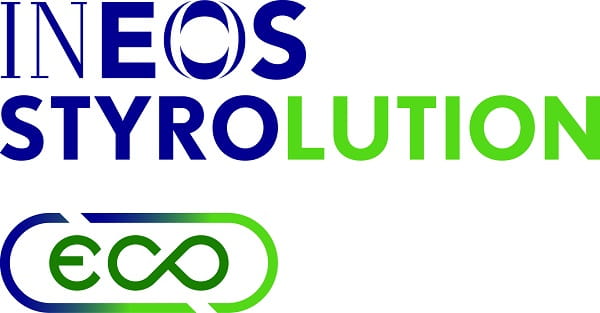
-S-OIL selects tech for PE project in South Korea
S-OIL Corporation has selected Univation’s UNIPOLPE Technology for three world-scale production lines to be located at S-OIL’s site at Ulsan, the Republic of Korea, said the company.
Each line is designed to achieve a nameplate capacity of 400,000 tons per annum for a combined polyethylene (PE) production capacity of 1,200,000 tons per annum.
The design basis for these three lines enables S-OIL to access the full-density flexibility of the UNIPOL PE Process platform. This flexibility enables S-OIL with production capabilities to satisfy a wide range of demand for essential HDPE and LLDPE applications for both domestic consumption as well as global export market needs.
S-OIL has further elected to access Univation’s advanced product portfolio covering both HDPE and LLDPE applications. Chemical recycling – Waste sorting
S-OIL will also use Univation’s PREMIER APC+ 3.0 platform which delivers advance process control capabilities further enhancing the overall operating performance of all three UNIPOL PE Process lines. Univation developed the APC+ 3.0 platform specifically for the UNIPOL™ PE Process to enable superior operational control that allows the optimizing of raw material utilization, maximization of production rates, and provides for seamless product grade transitions. Additionally, S-OIL has elected to utilize the UNIPOL PE Process Virtual Plant Simulator software. The UVPS training platform is designed to deliver realistic operation training experiences allowing S-OIL to train its entire staff on all essential unit operations related to the UNIPOL PE Process including both routine and non-routine operating conditions. Chemical recycling – Waste sorting
-LyondellBasell and EEW sign LOI for potential advanced waste sorting
ROTTERDAM, Netherlands and HELMSTEDT, Germany, March 27, 2023 /PRNewswire/ — LyondellBasell, a global leader in the chemical industry, and EEW Energy from Waste, a leading company in thermal waste treatment in Europe recently signed a letter of intent (LOI). The LOI includes exploring a potential long-term strategic partnership to extract and recycle plastics out of incineration waste streams. This proposed collaboration would potentially include construction of waste pre-sorting facilities at or near EEW incineration plants to remove plastics from waste streams bound for incineration, and investment in advanced sorting facilities to further sort and refine the plastic that has been removed. This collaboration supports the new LyondellBasell strategy to invest in advanced sorting infrastructure to produce plastic waste-based feedstocks, grow its Circular and Low Carbon Solutions business, and deliver on its value creation ambitions. Chemical recycling – Waste sorting
“Collaborations across the value chain are part of our strategy and are increasingly necessary to free up plastic waste from sources that today do not end up in recycling,” says Yvonne van der Laan, LyondellBasell executive vice president, Circular and Low Carbon Solutions. “The materials from these sorting facilities would not only support our existing mechanical recycling facilities in the Netherlands and a potential advanced recycling unit in Germany, but also allows us to optimize waste streams and drive additional value.”
This collaboration would close the loop on plastics that are today sent for incineration, by sorting them out for use as feedstock in mechanical and advance recycling processes. By removing these materials from the incineration waste stream, the fossil CO2 emissions associated with combusting the materials are also avoided. Chemical recycling – Waste sorting

-Recticel : Successful completion of the PUReSmart project
Successful completion of the PUReSmart project
On the way to a closed loop for PUR mattresses
- Chemical recycling of both flexible foam raw materials is now proven
- Recticel coordinated four-years EU-funded research project
- Covestro drives further development through to industrial use
- Evocycle® CQ Mattress is Covestro’s first chemical recycling initiative
Now that the Europe-wide research project “PUReSmart” has come to an end, Recticel and the leading company Covestro are pleased with the positive outcome. They were able to demonstrate that the two main raw materials originally used in flexible polyurethane (PU) foam from mattresses can be recovered by chemical means to a high level of quality and purity. For the first time, a flexible foam sample has now been produced from fully recycled polyol and toluene diisocyanate (TDI), respectively. Both raw materials were obtained in Covestro’s pilot plant in Leverkusen. Chemical recycling – Waste sorting
“With this we have fully achieved the goal of developing a technology to chemically recycle these products and convert polyurethane into a high-quality recycled material,” says Bart Haelterman, R&D Director at Recticel. “For the first time in history polyurethane is truly fitting into a circular economy.” The European Union funded the PUReSmart project with six million euros over a four-year period under its Horizon 2020 research and innovation program (agreement No. 814543).
Building on the PUReSmart project, Covestro is working with partners from the waste management industry to drive the further development of flexible foam recycling through to industrial use. “Our goal is to turn waste into valuable raw materials and to anchor the principle of the circular economy in our company and along the value chain with our partners to achieve this,” says Christine Mendoza-Frohn, EVP Head of Performance Materials Sales EMEA & LATAM of Covestro. Chemical recycling – Waste sorting
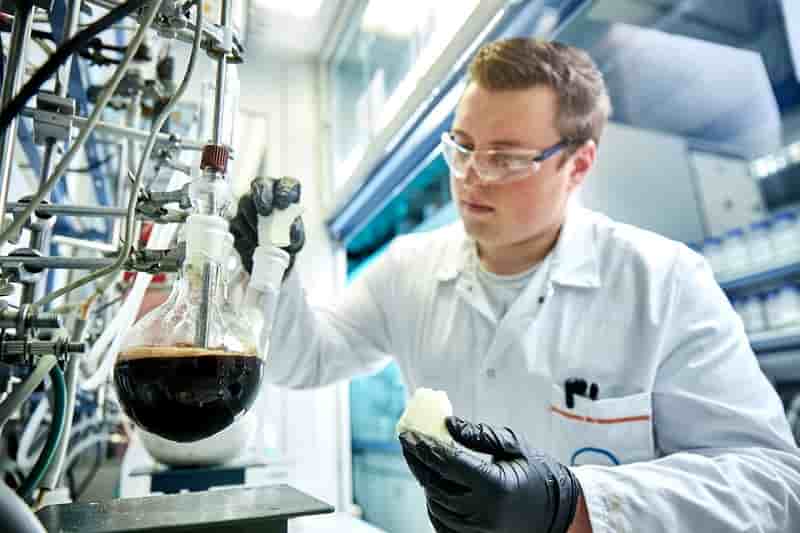
-Plastics supply chain in Europe continues to push for greater legal certainty for recycled content
There is obvious urgency behind the recent meeting of 31 trade associations for the EU to be clear on how it legally views chemical recycling and how recycled content is tracked in plastic products.
It is the tracking of recycled content that is a major issue, with industry pressing for the legal acknowledgement of a mass balance approach that excludes fuel use.
“Mass balance is a transparent and auditable method to trace a defined material characteristic along the value-chain from material suppliers to consumers,” the trade associations, which represent chemical producers, plastics converters, recyclers and end-use industries, claim. Chemical recycling – Waste sorting
“A mass balance chain of custody is already used and accepted in other domains such as sustainable forestry products and fair-trade cocoa and chocolate,” they said.
Essentially, this is a push for policy support from the European Commission and EU member states for chemical recycling that could help speed investment and add more overall plastic recycling capability.
“The rules currently being developed for the Single-Use Plastics Directive (SUPD) implementing act will have a key impact on both mechanical and chemical recycling investments in Europe,” the associations said.
The timelines for targets set out in frameworks such as the proposed Packaging and Packaging Waste directive, which set out goals for chemical recycling capacity by 2030 and 2040, will require the sector to begin work on commercial-scale production facilities immediately, according to the associations.
“It is therefore key that policymakers set a precedent as to when and how a mass balance chain of custody in recycled plastics will be applied in the EU sooner rather than later,” the trade groups said Chemical recycling – Waste sorting
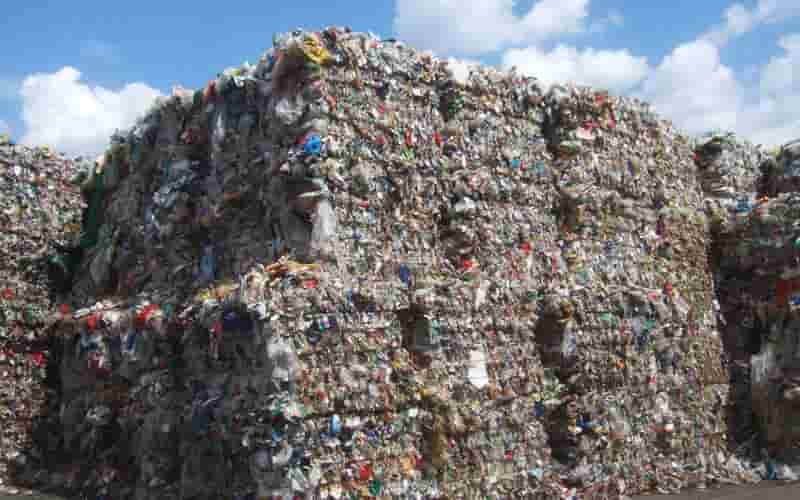
-Innovia presents sustainable label films at Interpack
Featured products include polypropylene films for mono-material solutions, linerless applications, and recycling-friendly shrink films.
Innovia Films, a producer of BOPP films, is going to be present at Interpack 2023 in Duesseldorf, Germany from May 4 to 10 to showcase innovations for the label and packaging industries.
“The sustainable packaging innovations of tomorrow start with the basics – packaging materials that are compatible with the recycling systems and also offer different functionalities to protect food and beverages,” says Simon Huber, managing director, Innovia Films Europe. “We are ensuring that our Research and Development Team are all working to a common goal to ensure that recyclability is at the forefront of our design criteria for products we launch into the marketplace so that they can remain within the circular economy – this is what we want to show our visitors at the trade show”.
Polypropylene Films for mono-material solutions for easier recycling of flexible packaging
Innovia Films will be showcasing several films for mono material laminates. Propafilm CHS is a thermally stable BOPP used to replace PET in a variety of applications including retort pouches. Chemical recycling – Waste sorting
If barrier laminates are required the Strata range of BOPP EVOH coextrusions laminated to a low temperature seal Cast PP, Propacast KF, will ensure low OTR and excellent seal integrity whilst maintaining excellent clarity and gloss.
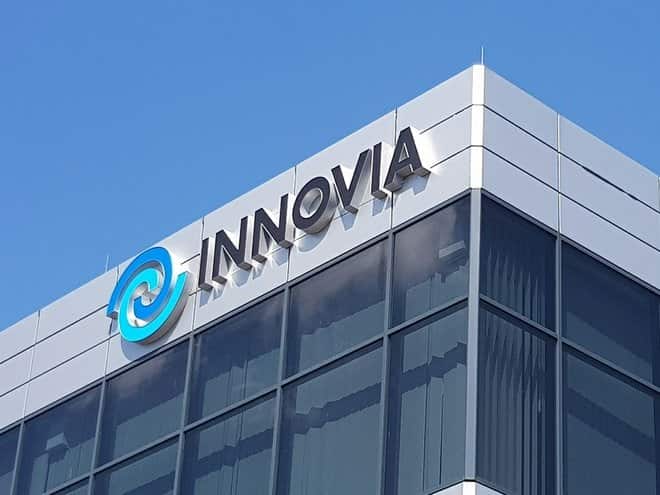
-In Germany, recycled PET in bottles is increasing
In 2021, it rose to 44.8%. The recycling rate also improves, which thanks to the deposit on deposit is close to 95% of what is released for consumption.
pet bottles The percentage of recycled PET in plastic bottles produced in Germany rose by ten percentage points between 2019 and 2021, from 34.4% to 44.8%, with an upward trend.
The data, contained in a study prepared by the GVM packaging market research company, was released by the IK Industrievereinigung Kunststoffverpackungen association, which brings together German manufacturers of plastic material packaging.
The same study shows that the recycling rate of PET beverage bottles stood at 94.8% two years ago, including the deposit guarantee scheme (DRS). The latter, alone, recorded a rate of 97%. Chemical recycling – Waste sorting
“The high rPET in bottles and recycling rates are proof of the efficiency of the German deposit system – explains Isabell Schmidt, director of IK -. We see great potential across Europe and hope that other countries set up deposit systems similar, future-oriented”. “Given the great success of the DRS system – he adds -, it is foreseeable that it will soon be made mandatory throughout the European Union”.
alpla bottle recoveryOf the recycled PET in Germany, after removing the 2-5% that is lost in the process, 44.7% goes back to the original application, i.e. PET bottles (+7% compared to 2019); 26.8% is extruded into packaging films and other packaging, 11.3% ends up in the yarn and fabric sector, while the remaining 17.2% is lost in a trickle of different applications.
The study also attests to the trend towards making the bottles lighter, which in the period considered resulted in an estimated material saving of around 4.5%. This phenomenon, combined with the replacement of plastic with glass, has led to a reduction in the consumption of PET in bottles by 5%, equal to 446 thousand tons, again between 2019 and 2021. Chemical recycling – Waste sorting
“Consumers in Germany can use PET bottles with a clear conscience – comments Isabell Schmidt -. They are transported and recycled in an energy efficient way and do not end up in the environment due to storage.”
The director of IK also points out the strong demand for recycled material, which is reflected in prices, with the result that for some years now rPET has been more expensive than virgin. The offer should increase in the coming months: after the extension this year of the deposit on deposit to PET bottles for fruit juices, in 2024 it will also be the turn of those for milk, thus closing the circle.
